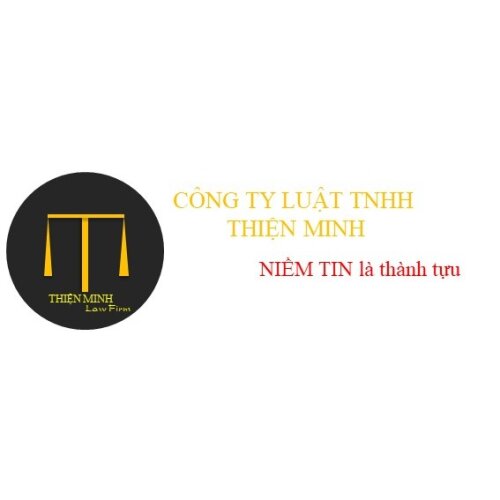Best Estate Planning Lawyers in Vietnam
Share your needs with us, get contacted by law firms.
Free. Takes 2 min.
Or refine your search by selecting a city:
List of the best lawyers in Vietnam
About Estate Planning Law in Vietnam
Estate planning in Vietnam involves preparing for the management and disposal of a person’s estate during their life and at and after death. It typically involves drafting wills and trusts, appointing executors, and creating plans for potential incapacity. Under Vietnamese law, the Civil Code governs matters related to inheritance, and specific provisions are made to handle both testamentary and intestate succession. Vietnamese estate planning also considers family law dimensions, including marriage, divorce, and succession by relatives. Understanding local policies and navigating the bureaucratic process are essential when dealing with estate matters.
Why You May Need a Lawyer
Engaging a lawyer for estate planning can be crucial in several scenarios:
- Complex Estates: When dealing with large or complicated estates with multiple assets and beneficiaries, legal guidance helps ensure all affairs are correctly handled.
- Business Involvement: If a business or substantial financial investments are involved, intricate planning is necessary to avoid potential disputes and tax implications.
- Disputes and Disagreements: Lawyers can mediate and resolve family disputes over property or inheritance to avoid lengthy legal battles.
- Legal Documentation: Professionals ensure all documents, such as wills and trusts, comply with Vietnamese law and clearly express the intentions of the estate owner.
- International Assets: Cross-border assets require careful handling to comply with both domestic and foreign regulations.
Local Laws Overview
Vietnam's estate planning law is primarily governed by the Civil Code, which includes provisions on how property should be transferred upon death. Key aspects of these laws include:
- Wills: Must be in writing and witnessed, with detailed guidelines on validity, revocation, and execution.
- Inheritance Without a Will: Intestate succession rules guide the distribution of estate when no valid will is present, prioritizing spouse, children, and parents.
- Executor Role: Defined responsibilities and duties for administrating the estate as per the will or under legal guidance in intestate cases.
- Foreign Nationals: Specific provisions for the inheritance rights of foreigners, especially in relation to property ownership.
- Tax Considerations: Estate and inheritance taxes, with specific allowances and exemptions that can impact the estate planning process.
Frequently Asked Questions
What is the legal age for making a will in Vietnam?
In Vietnam, individuals must be at least 18 years of age to make a legally valid will.
Do I need a lawyer to draft a will in Vietnam?
While not legally required, it is advisable to engage a lawyer to ensure the will is drafted correctly and legally binding.
Can foreigners inherit property in Vietnam?
Foreign nationals can inherit property in Vietnam, but specific restrictions may apply, particularly regarding land ownership.
How does intestate succession work?
If someone dies without a will, their assets are distributed according to the statutory order of inheritance: spouse, children, parents, followed by extended family.
Are there taxes on inheritance in Vietnam?
Yes, Vietnam imposes inheritance taxes, but there are considerations and exemptions based on the relationship of the beneficiary to the deceased.
How can estate disputes be resolved in Vietnam?
Disputes are typically resolved through mediation or litigation in courts, with lawyers facilitating negotiations or representing interests.
What happens if multiple wills are found?
The most recent will, if valid, takes precedence. It’s crucial to clearly state revocation of previous wills when drafting a new one.
Can a will be amended or revoked?
Yes, a will can be amended or revoked at any time as long as the testator is alive and mentally competent.
Is there a standard form for wills in Vietnam?
While there is no mandatory form, wills must comply with structural requirements, including signatures and witness details.
What are the executor’s duties?
Executors are responsible for fulfilling the instructions in the will, managing estate assets, and ensuring debts and taxes are paid.
Additional Resources
For anyone seeking more information on estate planning in Vietnam, consider the following resources:
- Vietnam Ministry of Justice: Offers legal guidance and publications on inheritance laws.
- Local Bar Associations: Provide access to accredited lawyers and legal advisors specializing in estate planning.
- Vietnam Court System: For understanding legal processes related to dispute resolution and probate cases.
Next Steps
If you require legal assistance in estate planning, consider the following steps:
- Identify your specific needs, such as will drafting, trust setup, or dispute resolution.
- Consult with a professional estate planning lawyer to discuss your case and legal options.
- Gather necessary documents, including asset lists and family details, to facilitate legal advice.
- Review and understand all legal documents before signing or making any decisions.
- Stay informed of any changes to laws affecting estate planning through continuous guidance from your legal advisor.
Lawzana helps you find the best lawyers and law firms in Vietnam through a curated and pre-screened list of qualified legal professionals. Our platform offers rankings and detailed profiles of attorneys and law firms, allowing you to compare based on practice areas, including Estate Planning, experience, and client feedback.
Each profile includes a description of the firm's areas of practice, client reviews, team members and partners, year of establishment, spoken languages, office locations, contact information, social media presence, and any published articles or resources. Most firms on our platform speak English and are experienced in both local and international legal matters.
Get a quote from top-rated law firms in Vietnam — quickly, securely, and without unnecessary hassle.
Disclaimer:
The information provided on this page is for general informational purposes only and does not constitute legal advice. While we strive to ensure the accuracy and relevance of the content, legal information may change over time, and interpretations of the law can vary. You should always consult with a qualified legal professional for advice specific to your situation.
We disclaim all liability for actions taken or not taken based on the content of this page. If you believe any information is incorrect or outdated, please contact us, and we will review and update it where appropriate.
Browse estate planning law firms by city in Vietnam
Refine your search by selecting a city.
















